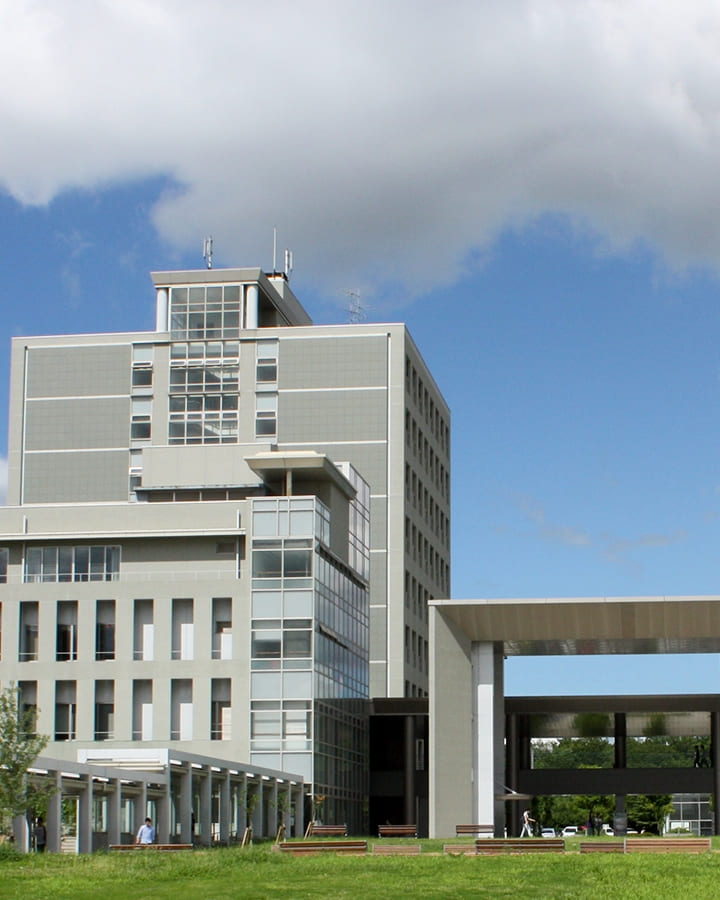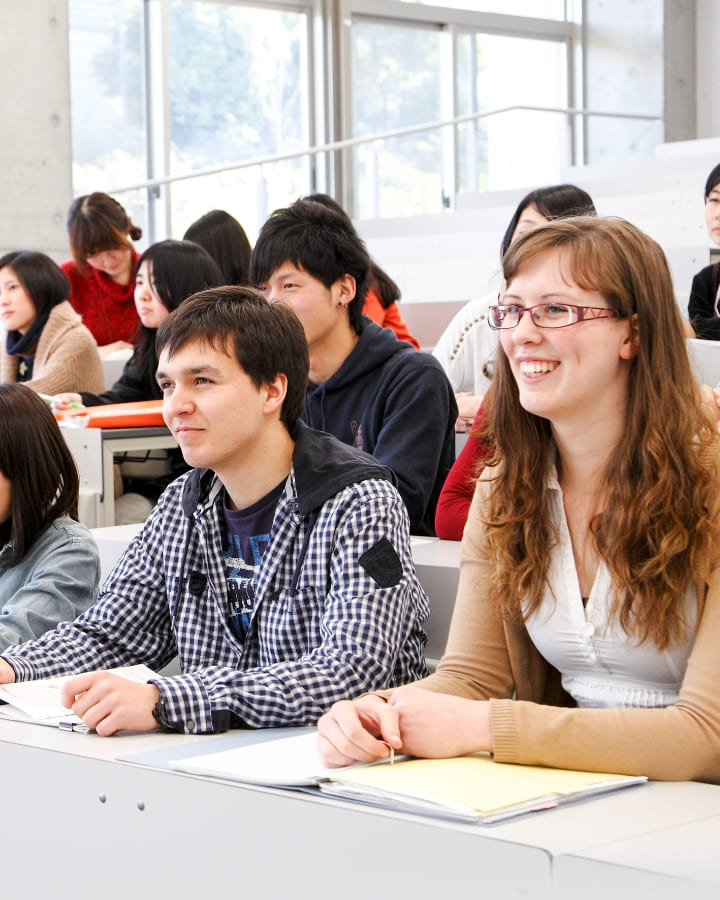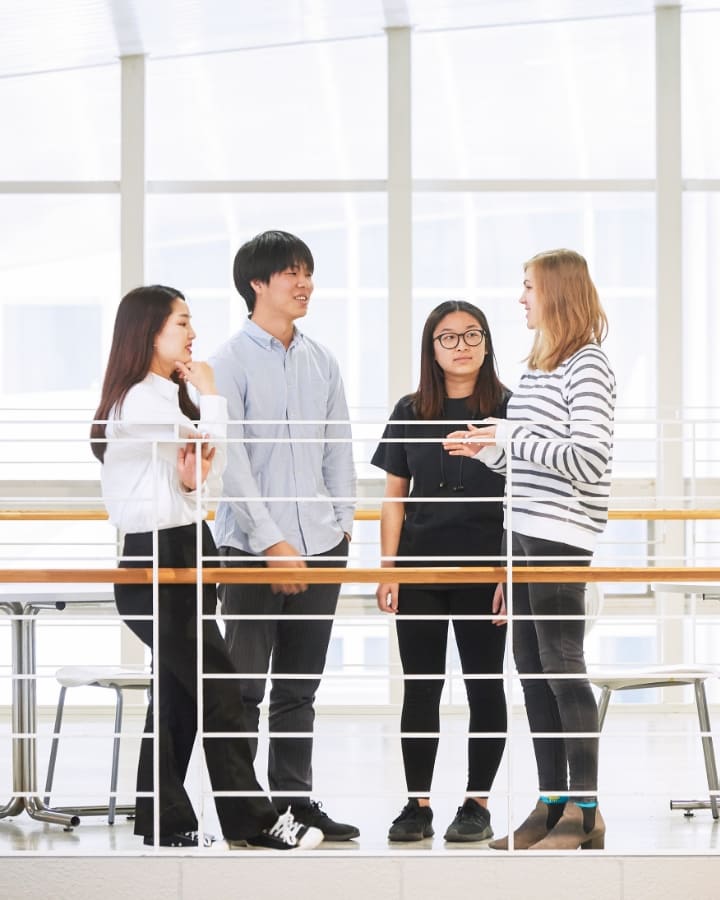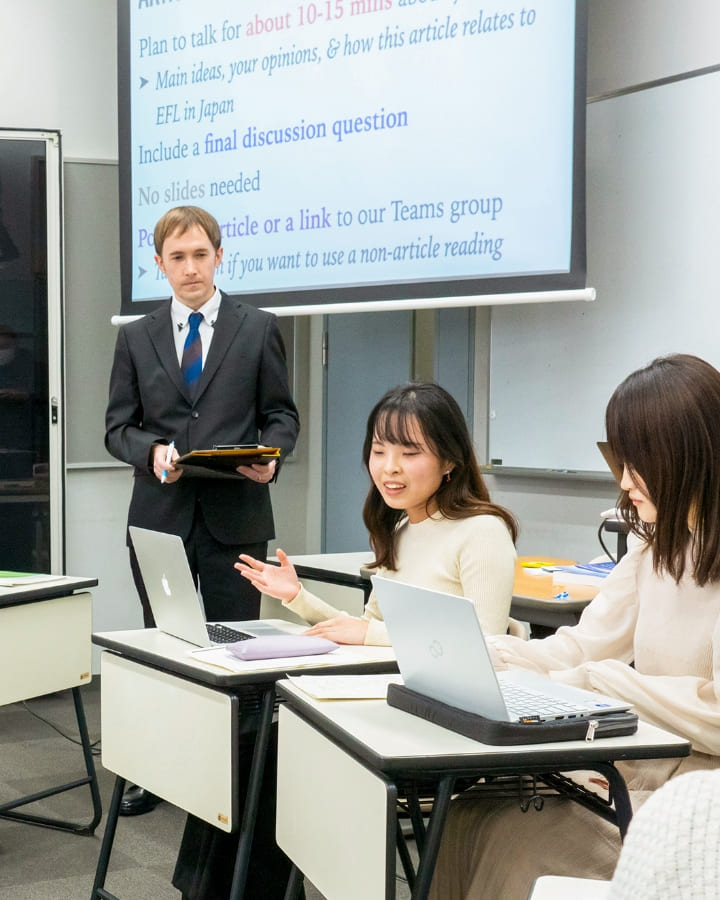
Our goal is to conduct theoretical and practical research on human development and its support throughout the human lifespan, from children to the elderly.
Modern society has created a variety of challenges related to the development of human beings as dignified individual. They are intricately related to each other both phenomenologically and in the process of occurrence, and sometimes lead to a crisis of human development. Collaboration among various sciences is essential to elucidate these issues and develop solutions.
The Graduate School of Human Development is taking on the challenge of creating a "study of human development" that seeks to elucidate various issues and explore the essence of human development from an interdisciplinary and international perspective, with the various sciences related to education and social welfare as its pillars.
In the Master's and Doctoral Programs, faculty members from various fields collaborate to teach cutting-edge academic knowledge and provide research guidance and in long-term study programs that meet the specific needs of graduate students in a supportive environment.
Admission policy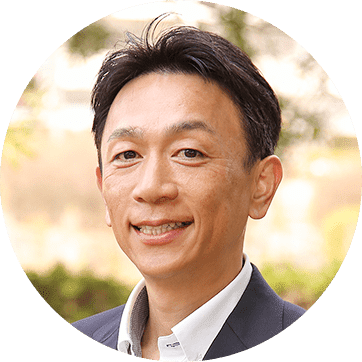
Shuichiro Inashima
Greetings from the Dean
In April 2011, the Graduate School of Human Development was newly launched with the establishment of a doctoral program and a greatly expanded faculty for the existing master's program.
With the postwar structure of public responsibility for education and social welfare undergoing a major transformation, are various reforms equally guaranteeing the human rights, lifelong development, and dignity of children, people with disabilities, the elderly, foreigners, and their families? Today, ideas from welfare and medicine are being applied in the fields of school education and childcare, while in the field of social welfare, the concept of "development" is being redefined and new possibilities explored, with human dignity at stake. The phenomenon of cross-fertilization between education and social welfare, or the practice of collaboration between the two fields, is forcing us to fundamentally rethink conventional pedagogy and social welfare studies.
We are confronting the issue of the developmental crisis of children and adults in the transition period from a "disparate society" to a "mature and convivial society," and we will continue to work from an interdisciplinary and international perspective, based on collaboration between staff in pedagogy, psychology, childcare, and other fields of education, and social welfare, including social welfare, medicine, economics, sociology, and law. We aim to create human development studies by forming partnerships with local educational and social welfare institutions from an interdisciplinary and international perspective.
Students who are interested in learning more about education and social welfare:
- To working professionals, such as incumbent teachers and social workers, who aim to become more advanced professionals, why don't you join us in our Master's Program?
- To master's course graduate students and researchers who are already engaged in education and research at universities and other institutions and who are planning to compile the results of their research into a doctoral dissertation, we invite you to join us in our Doctoral Course!
Educational Policy of the Graduate School of Human Development
Educational Objectives of the Graduate School of Human Development
- Exploration of advanced value concepts of human development based on the dignity of the individual.
- Formation of research skills through the acquisition of scientific knowledge and analytical methods related to various issues of human and social life.
- Development of insight and advanced professional skills in the theory and practice of assisting human development and life.
Research Environment at the Graduate School of Human Development
- We have a faculty from a variety of specialized fields, nearly three times the number of graduate students, and a thorough research guidance system with a main supervisor and assistant supervisors.
- We accept graduate students who have the learning needs of working people, such as in-service teachers, social workers, and those who wish to conduct research while raising children or caring for relatives, and we seek to support and develop their research life. Specifically, the program includes a "Special Working Adult Student" category in the entrance examination (first semester), evening classes, and a long-term enrollment system.
- Subject groups are arranged to pave the way for acquisition of licenses and qualifications in specialized fields related to this graduate school, including full-time licenses for elementary school, kindergarten, and high school (civics) teachers, and clinical and developmental psychologists, as well as to support research activities through the reciprocal exchange of theory and practice.
